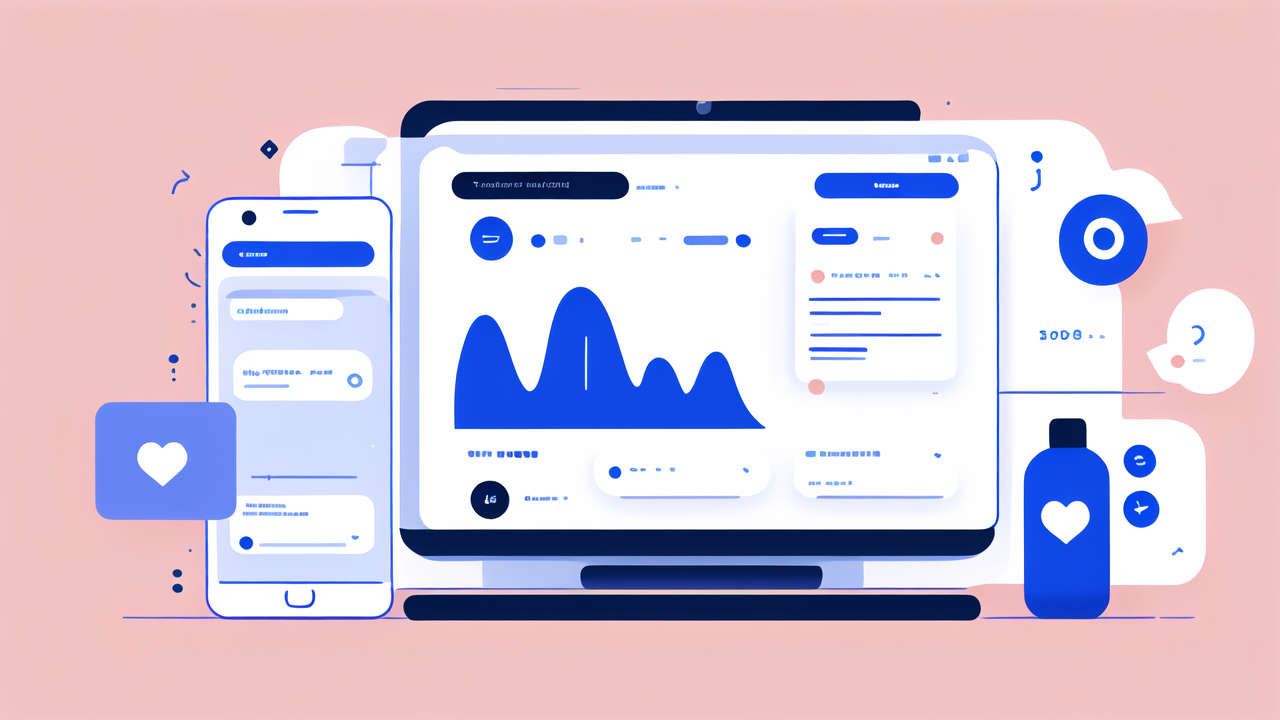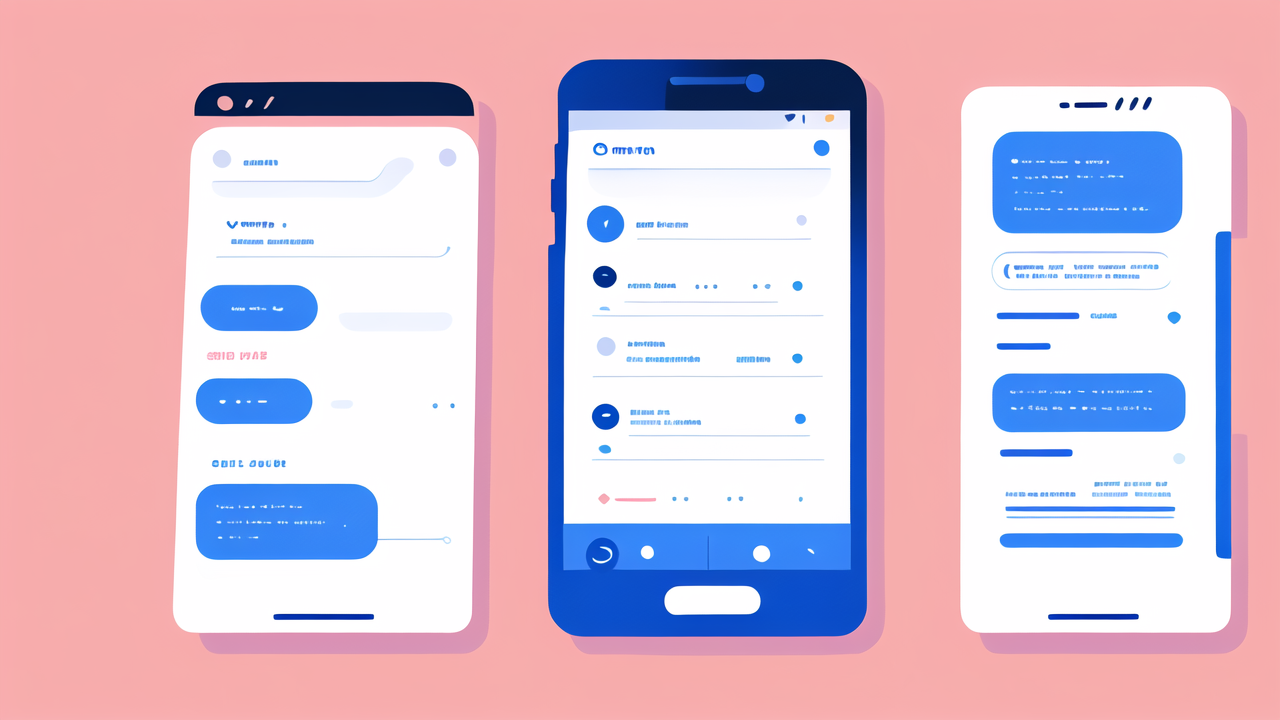The Rise of AI in Smartwatch Development
Understanding the Role of AI in Wearable Technology
AI is changing the game for smartwatches. These tiny computers on our wrists are getting smarter by the day. AI helps smartwatches learn from our habits and adapt to our needs. It's like having a personal assistant right on your wrist.

AI can process data from sensors in real-time. This allows smartwatches to give us useful insights about our health and activities. The AI in these devices can spot patterns that we might miss. It can even predict potential health issues before they become serious.
AI also makes smartwatches more user-friendly. It can understand voice commands and respond to natural language. This means we can interact with our devices more naturally. AI is truly making our smartwatches an extension of ourselves.
The Evolution of AI Algorithms for Smart Watches
AI algorithms for smartwatches have come a long way. Early versions were simple and could only do basic tasks. Now, they're complex and can handle a wide range of functions.
Machine learning algorithms have been a game-changer. They allow smartwatches to learn from user data and improve over time. For example, they can learn your fitness routines and suggest personalized workout plans.
Natural Language Processing (NLP) is another key area. It's gotten much better at understanding and responding to voice commands. This makes it easier to control your smartwatch without using your hands.
Deep learning algorithms are also making waves. They can analyze large amounts of data to provide more accurate health insights. These algorithms can even detect irregular heart rhythms or predict the onset of certain conditions.
Key Players and Innovations in AI for Smartwatches
Apple is a major player in the smartwatch AI game. Their Apple Watch uses AI to provide personalized fitness coaching and health monitoring. They're also working on AI that can detect falls and call for help if needed.
Google's Wear OS is another big name. They're using AI to improve battery life and provide more accurate fitness tracking. Their AI can even suggest nearby places based on your habits and location.
Fitbit, now owned by Google, is known for its health-focused AI. Their devices use AI to track sleep patterns and provide detailed health insights. They're also working on AI that can detect stress levels and suggest relaxation techniques.
Samsung is pushing boundaries with their Galaxy Watch series. They're using AI to provide more accurate heart rate monitoring and stress tracking. Their latest models even use AI to detect when you've fallen and need help.
Impact of AI on Smart Watch Features
Enhancing User Experience with AI
AI is making smartwatches more intuitive and easier to use. It can learn your habits and preferences to provide a personalized experience. For example, it might show your favorite apps at certain times of day.

Voice assistants powered by AI are becoming more common. They can understand complex commands and provide helpful responses. This makes it easier to control your smartwatch without using your hands.
AI is also improving the accuracy of fitness tracking. It can learn your workout patterns and provide more accurate calorie burn estimates. Some watches can even detect what type of exercise you're doing automatically.
Predictive text and smart replies are another AI-powered feature. They can suggest responses to messages based on your writing style. This makes it easier to reply to messages quickly from your wrist.
AI Integration in Health and Wellness Features
AI is revolutionizing health monitoring in smartwatches. It can analyze data from various sensors to provide detailed health insights. For example, it can track your heart rate variability to assess your stress levels.
Sleep tracking has improved thanks to AI. Modern smartwatches can analyze your sleep patterns and provide tips for better sleep. Some can even detect sleep apnea and other sleep disorders.
AI is also helping with early detection of health issues. Some watches can detect irregular heart rhythms that might indicate atrial fibrillation. Others are working on AI that can detect early signs of diabetes or hypertension.
Personalized health recommendations are another benefit of AI. Your watch can learn your habits and provide tailored advice for improving your health. It might suggest when to move more or remind you to drink water.
AI in Smart Watches: Empowering Users with Diverse Ecosystems
AI is helping smartwatches connect with other smart devices. This creates a more seamless user experience across different platforms. Your watch might control your smart home devices or sync with your fitness equipment.
AI-powered smartwatches can learn from your daily routines. They can then automate certain tasks based on your habits. For example, they might automatically start tracking a workout when you arrive at the gym.
These watches are also becoming more context-aware thanks to AI. They can adjust their behavior based on your location or activity. Your watch might switch to silent mode when you enter a meeting, for instance.
AI is also improving how smartwatches interact with smartphones. They can prioritize notifications and only alert you for important messages. This helps reduce distractions and makes the watch more useful.
Future Trends: What's Next for Smart Watches?
Predicting the Next Big AI Innovations for Smartwatches
Emotion recognition could be the next frontier for smartwatch AI. Future watches might be able to detect your mood based on your voice or heart rate. They could then offer support or suggestions to improve your mood.

Advanced health monitoring is likely to improve. We might see smartwatches that can monitor blood glucose levels non-invasively. This would be a game-changer for people with diabetes.
AI-powered virtual health assistants could become more common. These might offer personalized health advice based on your data. They could even connect you with healthcare providers when needed.
We might also see more integration with augmented reality (AR). Your smartwatch could become a control center for AR experiences. It might project information onto your surroundings or control AR glasses.
How AI Could Shape the Future of Wearable Technology
AI could make wearables even more seamless and intuitive. We might see devices that can anticipate our needs before we even realize them. Imagine a watch that orders your favorite coffee as you approach the cafe.
Biosensors powered by AI could revolutionize health tracking. Future wearables might be able to detect and analyze tiny amounts of chemicals in your sweat. This could provide insights into your nutrition, hydration, and overall health.
AI could also make wearables more autonomous. They might be able to make decisions and take actions on our behalf. For example, a smartwatch could automatically call for help if it detects a medical emergency.
We might also see AI-powered wearables that can understand and respond to gestures. This could make interaction even more natural and intuitive. You might control your device with simple hand movements.
The Role of AI in Personalizing Smart Watch Experiences
AI will likely play a big role in making smartwatches more personal. They could learn our preferences and habits to provide a truly tailored experience. Your watch might adjust its interface based on how you use it.
Personalized health insights could become more advanced. AI might analyze your data to provide highly specific health recommendations. It could take into account your genetics, lifestyle, and environment.
AI could also make smartwatches better at adapting to different situations. They might change their behavior based on whether you're at work, home, or on vacation. This could make them more useful in different contexts.
Finally, AI might enable smartwatches to become more proactive. Instead of just responding to commands, they could anticipate your needs. They might suggest actions or provide information before you even ask for it.




Leave a comment
This site is protected by hCaptcha and the hCaptcha Privacy Policy and Terms of Service apply.